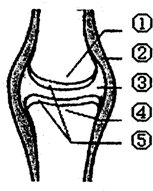One day while walking along the bank of a river, a rabbit couple(夫妇) saw a wounded(受伤的) ant lying unconsciously(没有直觉地) on the grass. The rabbit couple gently put the ant on the leaf(叶子) of a nearby plant. She soon recovered and saw the rabbit couple sitting beside her.
The ant remembered that she had found herself under the foot of a cat by chance and fainted(晕倒). She asked how she reached the leaf top. The rabbit couple told her what had happened. The ant thanked them and said she would help them when they needed help.
The rabbit couple went further up the river to enjoy the bright sun. They had been there many times and would spend many hours playing and relaxing in the sun.
One fine day, the couple were again on their way to the river while the ant was playing on the leaf of a tree. She saw the rabbit couple walking towards the river. A few hours later she saw the rabbit couple sleeping peacefully on the soft grass by the river. Suddenly she saw a lion moving towards the grass where the rabbit couple were sleeping. The loin saw the rabbit sleeping, and started walking quietly to attack them.
Realizing the hazard getting close to the rabbits, the ant jumped from the leaf to the lion’s shoulder and bit(咬) the lion’s back. The lion cried out in pain, waking the rabbit couple. The rabbits ran away quickly and the ant jumped off the lion’s back into the grass.
A white pigeon(鸽子) who watched this event cheered at the courage(勇气) of the ant and told the whole story to the rabbits. The rabbit couple were moved and thanked the ant. They became best friends.
小题1:From the first three paragraphs, we can learn that _____.
A.the rabbit couple put the ant on the leaf of a plant to hide her
B.the ant was wounded after fighting with a cat
C.the rabbit couple and the ant knew each other very well before
D.the rabbit couple often went to the river小题2:According to the passage, which of the following is TRUE?
A.The ant was hurt by the lion.
B.The ant was small but clever.
C.The white pigeon was as brave as the ant.
D.The lion wanted to play a joke on the rabbit couple.小题3:According to the passage, which is the correct order of the following events?
a. The ant jumped into the grass to hide.
b. The ant bit the lion’s back.
c. The lion moved towards the rabbit couple.
d. The rabbit couple saved the ant.
e. The ant saw the rabbit couple sleeping on the grass.
A.d,c,e,a,b
B.d,e,c,b,a
C.e,c,b,a,d
D.c,d,e,b,a小题4:The underlined word “hazard” in the fifth paragraph probably means “_____”.
A.reality
B.warning
C.experience
D.danger
小题1:D
小题1:B
小题1:B
小题1:D

